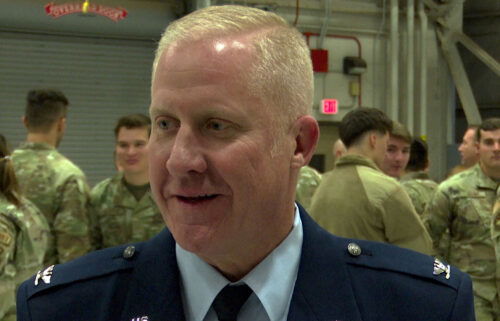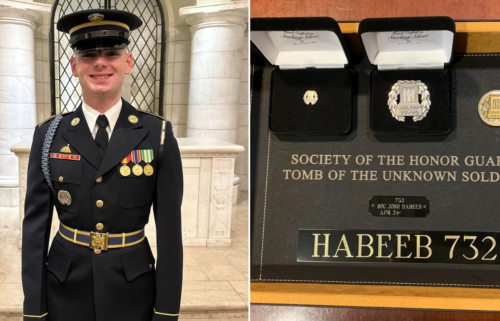Local bases support spouses of deployed personnel

By Charles Christian
Veterans Day focuses our attention on honoring those who have and continue to serve while also bringing a reminder that it takes a family to support the sacrifices of men and women in uniform.
Every military deployment involves family members who are left behind to feel the residual impact of husbands, wives and children who are sent into harm’s way.
While servicemembers know deployment to a faraway place is a real possibility, preparing for being away from your spouse for months at a time, especially when there are children to care for, can seem overwhelming. Both the Army National Guard and the 139th Airlift Wing at Rosecrans in St. Joseph have resources to support families while they await the return of their loved ones.
Amy Mathias, program manager of the Military and Family Readiness program, said hers is a full-service resource center.
“When a service member is deployed, there are a number of things we try to do for individuals,” Mathias said. “It ranges from providing the connection to the wing to resources like newsletters and connections to local nonprofit organizations when a financial or similar emergency arises.”
These connections can be particularly important because, as one spouse of a deployed member of the 139th Airlift Wing knows, something inevitably happens when a service member is away. Thalia Insco, who retired from the 139th after 22 years, is married to a member of the Airlift Wing who was recently deployed to the Middle East.
“For me, literally when I drop him off at the plane, something breaks,” Insco said. “Thankfully, if you have an issue or a concern or a financial matter or there’s a health problem in your family and you don’t know what to do, your first stop is to call the Family Support Center.”
Insco said that in addition to the Military and Family Readiness division, the member’s unit is an important resource for support.
“It’s nice to know you have a link to someone there at the base, whether it’s someone there in the squadron or the Family Readiness Unit,” Insco said. “I know that at the drop of a hat if something were to happen here, because it has, that all I need to do is call the squadron and they will link me with the help I need.”
Mathias said the twofold resource of the serviceperson’s squadron, combined with the nationwide networking available through the family and readiness program makes a big difference for families who find themselves in need with a spouse far away. It also comforts the deployed military member, who can rest assured that the needs of the family will not be left unattended while they are deployed.
Those needs go beyond the physical and financial. That is why the chaplain’s office is also part of the holistic approach military bases use to provide assistance. Michael White, who retired in 1999 after nearly 30 years as a Navy chaplain, said that during deployment, many difficult issues often come to the forefront.
“People find it very difficult when, for the first time, they’re by themselves,” White said. “And of course, the stress can be intensified when they are deployed in a war situation.”
It’s at these times, according to White, that a variety of religious and even informal fellowships can play a vital role in helping the coping spouse maintain stability. Chaplains can help military personnel and their family members in networking with places of worship, small group fellowships (both religious or non-religious) and counseling resources.
Once these connections are made, White said that, over time, spouses can experience healing, comfort and confidence.
“I have seen people, especially spouses, who have come into their own for the first time,” White said. “They have learned to cope with things they never thought they’d cope with. They have a fellowship group they’ve never had before, and they become more positive about things because they know where they can go for help.”
Insco emphasized the importance of taking the first step by making use of the resources available on military bases.
“If you have something going on,” Insco said, “don’t be afraid or too stressed out to reach out.”
The Resiliency Center at the 139th Airlift Wing, the home of the Military and Family Readiness program can be reached by contacting Mathias at 816-236-3511. The National Guard Armory, at 301 N. Woodbine Road, now has a full-time Military and Family Readiness coordinator. Contact Jill Kain at 816-390-8693.



